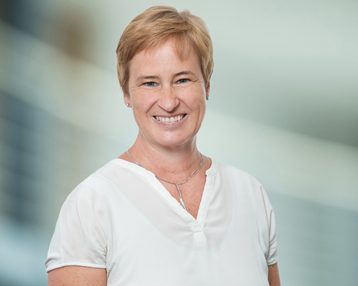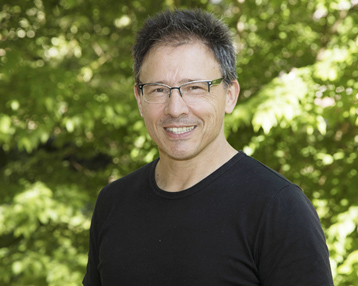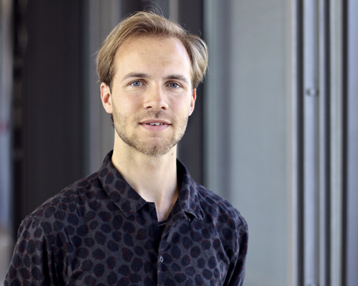Distinguishing the duality of research and teaching
Freiburg, May 09, 2018
If you were to follow the news about university politics, you might get the impression that excellent research and excellent teaching approaches compete with one another - especially against the background of the current Excellence competition. But do good teaching and good research really have to do that? Or is it possible for them to benefit from one another instead? A podium discussion for the series “On Research, Teaching, and Career Paths - Prospects for the Future of the University of Freiburg“ addresses these issues. Rimma Gerenstein asked the discussion participants Bettina Jorzik, Dr. Vitus Oberhauser and Phillip Stöcks which challenges they see for teaching in times of internationalization, diversity and the doubling of the student body.

Photo: C. Schüßler/Fotolia
 “Researchers have spoken in the past about awards, scientific breakthroughs, third-party funds and patents. When it came to teaching, however, people lamented about such problems as mass universities, dropouts, lazy students and unwilling teachers. The Excellence initiative, however, has conveyed the discomfort about the asymmetry between research and teaching, and the federal and state governments have launched compelling funding programs. Teaching is no longer a niche topic reserved for poor folks who supposedly could not succeed in academia. Anyone who wishes to get involved in teaching will be encouraged and financially rewarded along with time-related freedoms. This potential and increased public awareness make it much more important for universities to develop their own university-wide teaching strategy and to ensure that it lands on all levels: is the concept of a degree program adequate? Are the counseling and supervision offerings tailored to this? Do the teachers pull together, or does everyone just do their own thing? What kind of attitude do they have toward their work and do they have not only the permission to teach but also the qualification to do so?
“Researchers have spoken in the past about awards, scientific breakthroughs, third-party funds and patents. When it came to teaching, however, people lamented about such problems as mass universities, dropouts, lazy students and unwilling teachers. The Excellence initiative, however, has conveyed the discomfort about the asymmetry between research and teaching, and the federal and state governments have launched compelling funding programs. Teaching is no longer a niche topic reserved for poor folks who supposedly could not succeed in academia. Anyone who wishes to get involved in teaching will be encouraged and financially rewarded along with time-related freedoms. This potential and increased public awareness make it much more important for universities to develop their own university-wide teaching strategy and to ensure that it lands on all levels: is the concept of a degree program adequate? Are the counseling and supervision offerings tailored to this? Do the teachers pull together, or does everyone just do their own thing? What kind of attitude do they have toward their work and do they have not only the permission to teach but also the qualification to do so?
Institutes of higher learning must take current developments more into account: The current generation of students is no longer willing to adapt to rigid structures. Heterogeneity is on the rise, and higher education institutions need to address it with more flexible and individualized services. For this to succeed, among other things, educational research must be expanded. We need to know more about how young adults learn and how we can help them. It is equally important to make these findings available to all teachers - in a way that makes it easier for them to put the results into practice.”
Bettina Jorzik runs the program area “Teaching and Young Academics” at the Stifterverband and has co-responsibility for the nationwide competition “Excellent Teaching.”
Photo: David Ausserhofer/Stifterverband
 “It is undisputed that the University of Freiburg now attaches much greater importance to teaching than it did ten years ago. That’s all very well and good. Nevertheless, we are far from viewing teaching and research as having the same level of importance. If one were to take it seriously and look at the two quite evenly, a lot would have to be changed - and that’s what I'm advocating. In the past 20 years, the number of students in Baden-Württemberg has almost doubled. However, this fact is not adequately reflected in teaching resources – whether it is regarding finances, personnel or class space. In my foundation course, for instance, we do not have 150, but 220 students, which means 20 more hours of teaching, yet my teaching load remains the same. How is that supposed to work? How can teachers find the time to further their research, work out new formats that encourage sustainable, active learning, and provide students with detailed feedback? I wish that there were an organization equivalent to the German Research Foundation at the federal and state levels that promotes teaching: with calls for tenders and just as much third-party funding as they provide for science. If higher education policies no longer were to focus on excellent research, it would be possible to conceive of teaching as an attractive, full-fledged, university-based profession.”
“It is undisputed that the University of Freiburg now attaches much greater importance to teaching than it did ten years ago. That’s all very well and good. Nevertheless, we are far from viewing teaching and research as having the same level of importance. If one were to take it seriously and look at the two quite evenly, a lot would have to be changed - and that’s what I'm advocating. In the past 20 years, the number of students in Baden-Württemberg has almost doubled. However, this fact is not adequately reflected in teaching resources – whether it is regarding finances, personnel or class space. In my foundation course, for instance, we do not have 150, but 220 students, which means 20 more hours of teaching, yet my teaching load remains the same. How is that supposed to work? How can teachers find the time to further their research, work out new formats that encourage sustainable, active learning, and provide students with detailed feedback? I wish that there were an organization equivalent to the German Research Foundation at the federal and state levels that promotes teaching: with calls for tenders and just as much third-party funding as they provide for science. If higher education policies no longer were to focus on excellent research, it would be possible to conceive of teaching as an attractive, full-fledged, university-based profession.”
Vitus Oberhauser conducts research and instructs at the Institute of Biology I. In 2009 he received Freiburg’s University Teaching Award.
Photo: Ingeborg F. Lehmann
 “The Excellence competition focuses on the wrong things: The University of Freiburg is very concerned about the two clusters that are currently in the running, but does not invest as many resources in university-wide teaching and research advancement. The quality of teaching often depends on people and varies from subject to subject. In doing so, there should be greater motivation throughout the University to develop innovative teaching concepts that are firmly anchored in the degree programs. Teaching prizes often fall short: Although they reward good teaching of specific individuals, but they do not make wide enough claims.
“The Excellence competition focuses on the wrong things: The University of Freiburg is very concerned about the two clusters that are currently in the running, but does not invest as many resources in university-wide teaching and research advancement. The quality of teaching often depends on people and varies from subject to subject. In doing so, there should be greater motivation throughout the University to develop innovative teaching concepts that are firmly anchored in the degree programs. Teaching prizes often fall short: Although they reward good teaching of specific individuals, but they do not make wide enough claims.
I hope teachers will participate even more in didactic training and that the University will combine this even more consistently with evaluations. Another thing: students are increasingly coming to us with more diverse backgrounds. Teachers need to know how to design lessons so that, for example, students from non-academic backgrounds, from different cultures or from students with disabilities have the same access to courses. I find the potential of the European Campus particularly interesting for teaching. The partnership between the five universities has created a great foundation for mobility and exchange. Now it is important to make them available for study because we have a lot of unanswered questions such as regulations with regard to the different semester periods in Germany and France, an unproblematic crediting of academic achievements and - perhaps most important of all - a sustainable financing of the project.”
Phillip Stöcks studies physics, is a board member for the student government and represents students in the senate at the University of Freiburg.
Photo: Sandra Meyndt
Podium discussion
The podium discussion “Good research or good teaching – are both possible?” will take place on May 17, 2018 starting at 2pm in the rectorate at Fahnenbergplatz. The event is open to the general public. No registration is required.
For more information

